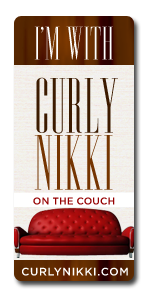by Erika-Marie Geiss
If your goal is to Make a Real Living as a Freelance Writer (to borrow Jenna Glatzer’s title) there are four keys to getting consistent freelance work: planning, research, patience and networking
Set yourself up for success
Start with a business plan. It doesn’t need to be formal and it doesn’t have to be for anyone’s eyes but your own. In it, state your goals — whether it’s a specific number of new clips, number of new clients, certain publications, a dollar amount — that you set as goals and benchmarks. Write out how you plan to achieve those goals along with why you are a professional freelance writer, and within your niche, where your strengths and skills are.
Also, keep a running list or spreadsheet of where you submitted/applied with the following:
Date of submission/application
Name of the person, company or publication
Contact information for the person, company or publication
How you submitted/applied (snail mail or e-mail)
When to expect a response (if the company or publication indicates this)
What you sent as part of the application/submission)
A spot for the ultimate result of the submission/application
A spot for additional notes that you might want to make along the way
These are good ways to stay organized and keep on top of your goals.
Be ready by also having a cover letter template that you can tailor for each possible job/individual that you are applying for. Make sure that your résumé and clips are always up-to-date. And, as with any other bricks-and-mortar job, be ready to provide references in case you are asked to supply them. The employer might not mention the need for references in their job description and requirements, but if you get to the stage where you are speaking with someone either in-person, by telephone or via e-mail, it could come up.
Now that you’ve done that, you can set about the task of finding work or getting new clients.
Research your options
Of course, since you’re here at FWJ, you already know about reading daily job postings, but ask yourself, am I using them and the job boards at other locations for creative freelancers wisely? That is, to your best advantage? Even if you are up at dawn, checking the daily posts and have subscribed to all of the feeds, a bit of research can be the difference between wasting your time and finding a good fit (or two or three). In other words, don’t just submit blindly and right away. Not all job postings will give full disclosure about a company, so it might be tricky. But when the information is available, don’t hesitate to use it. Remember, just as much as they are going to be screening you as an applicant or candidate, you should be screening them as a good company or person to work with. The last thing you want is to end up with a gig where you are constantly banging your head and thinking, “why did I take this position/assignment?” (Yeah, we’ve all been there. And even if they do make great cocktail party horror stories, they’re not worth it.)
When you’ve established that four of the seven postings for which you are qualified will also be a good fit for you, apply with a cover letter and by following the requirements/guidelines to a “T.” (Don’t forget to be courteous and professional. Even in the freelance world, using proper business etiquette is still important.) If clips are requested, use the ones that best match the job. Beyond money, it’s also important to know why you want to work for that person or company or on that specific project. The employer is going to want someone who is as enthusiastic and committed to their project, venture or company as they are. (If you’re a mercenary, you can pretend.)
Sit and wait … and wait
This is where patience comes in. Remember that you are one of hundreds (sometimes thousands) of people who have responded for the call for a freelance writer. It takes time to triage the applications, so while you’re waiting, continue to apply for other jobs and network. Why network? You might find that someone is looking for your skills right now and with the recommendation from a friend or colleague, that person could be you. (If that does happen, don’t forget to thank the person who recommended you.)
Hooray! You’ve landed the gig
There you are with this short-term project. The money is good. The relationship with your client is good. The project is coming to an end. But does it need to? Not necessarily. Find out if there are other projects available—after all, you’ve already established a relationship with the client, which if it has been mutually beneficial, could turn into more work. If most of your assignments are very short term (such as writing for a publication) keep submitting and establish a positive working relationship with the editor(s). Get to know the publications that you write for so that you can think like they think, speak like they speak and be a voice that their audiences want to hear repeatedly. These will not only help you land the gig, but keep you from losing potential new ones.
By doing your homework, being prepared and remembering to network well, you may find yourself in the strange and wonderful position of needing to turn down jobs. (Of course, when that happens, don’t forget to refer your fellow freelance writers.)
What are some of your best practices for finding work and achieving your goals as a freelance writer?
Cited here: FLJ
Subscribe to:
Post Comments (Atom)


No comments:
Post a Comment